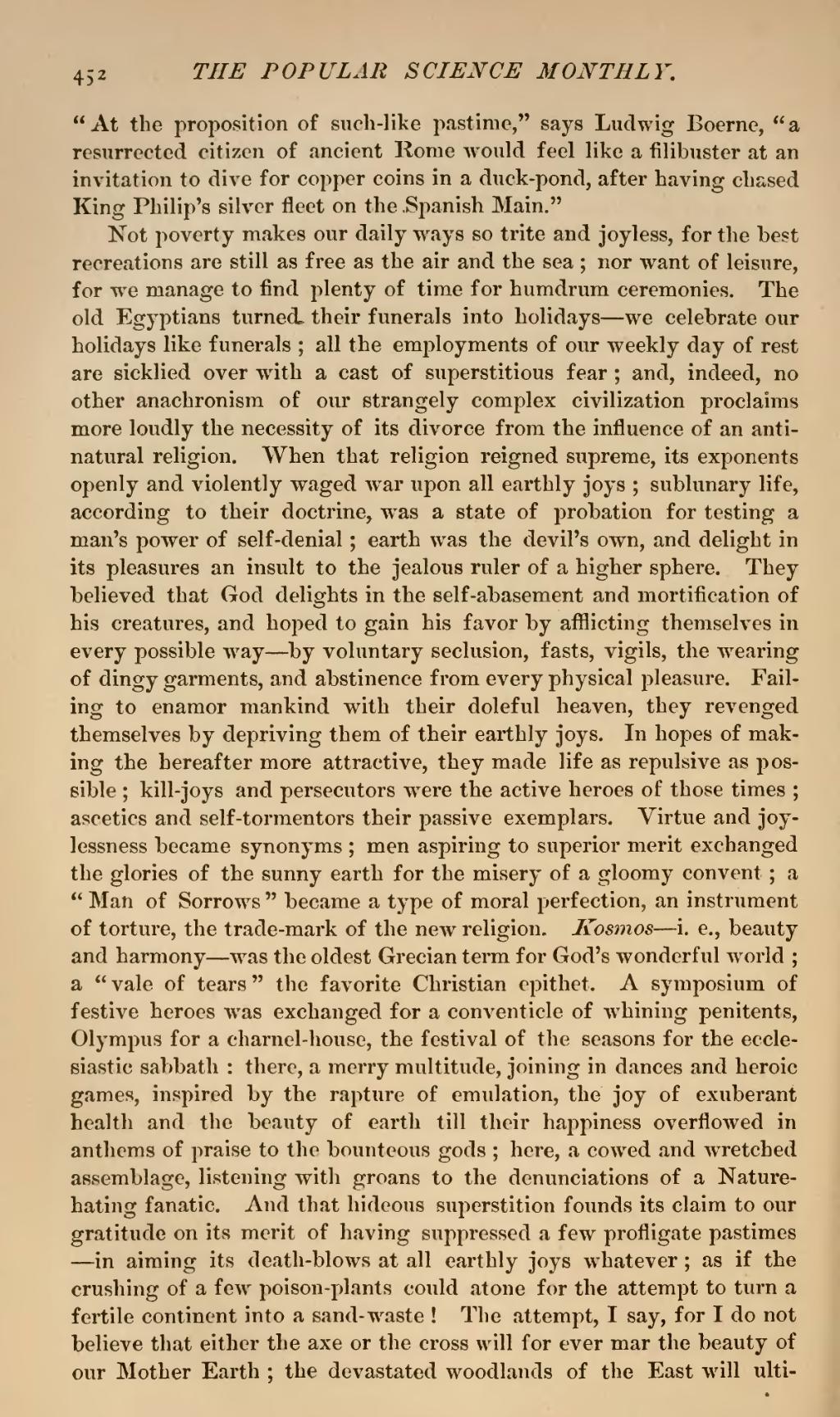"At the proposition of such-like pastime," says Ludwig Boerne, "a resurrected citizen of ancient Rome would feel like a filibuster at an invitation to dive for copper coins in a duck-pond, after having chased King Philip's silver fleet on the Spanish Main."
Not poverty makes our daily ways so trite and joyless, for the best recreations are still as free as the air and the sea; nor want of leisure, for we manage to find plenty of time for humdrum ceremonies. The old Egyptians turned, their funerals into holidays—we celebrate our holidays like funerals; all the employments of our weekly day of rest are sicklied over with a cast of superstitious fear; and, indeed, no other anachronism of our strangely complex civilization proclaims more loudly the necessity of its divorce from the influence of an antinatural religion. When that religion reigned supreme, its exponents openly and violently waged war upon all earthly joys; sublunary life, according to their doctrine, was a state of probation for testing a man's power of self-denial; earth was the devil's own, and delight in its pleasures an insult to the jealous ruler of a higher sphere. They believed that God delights in the self-abasement and mortification of his creatures, and hoped to gain his favor by afflicting themselves in every possible way—by voluntary seclusion, fasts, vigils, the wearing of dingy garments, and abstinence from every physical pleasure. Failing to enamor mankind with their doleful heaven, they revenged themselves by depriving them of their earthly joys. In hopes of making the hereafter more attractive, they made life as repulsive as possible; kill-joys and persecutors were the active heroes of those times; ascetics and self-tormentors their passive exemplars. Virtue and joylessness became synonyms; men aspiring to superior merit exchanged the glories of the sunny earth for the misery of a gloomy convent; a "Man of Sorrows" became a type of moral perfection, an instrument of torture, the trade-mark of the new religion. Kosmos—i. e., beauty and harmony—was the oldest Grecian term for God's wonderful world; a "vale of tears" the favorite Christian epithet. A symposium of festive heroes was exchanged for a conventicle of whining penitents, Olympus for a charnel-house, the festival of the seasons for the ecclesiastic sabbath: there, a merry multitude, joining in dances and heroic games, inspired by the rapture of emulation, the joy of exuberant health and the beauty of earth till their happiness overflowed in anthems of praise to the bounteous gods; here, a cowed and wretched assemblage, listening with groans to the denunciations of a Nature hating fanatic. And that hideous superstition founds its claim to our gratitude on its merit of having suppressed a few profligate pastimes—in aiming its death-blows at all earthly joys whatever; as if the crushing of a few poison-plants could atone for the attempt to turn a fertile continent into a sand-waste! The attempt, I say, for I do not believe that either the axe or the cross will for ever mar the beauty of our Mother Earth; the devastated woodlands of the East will ulti-
